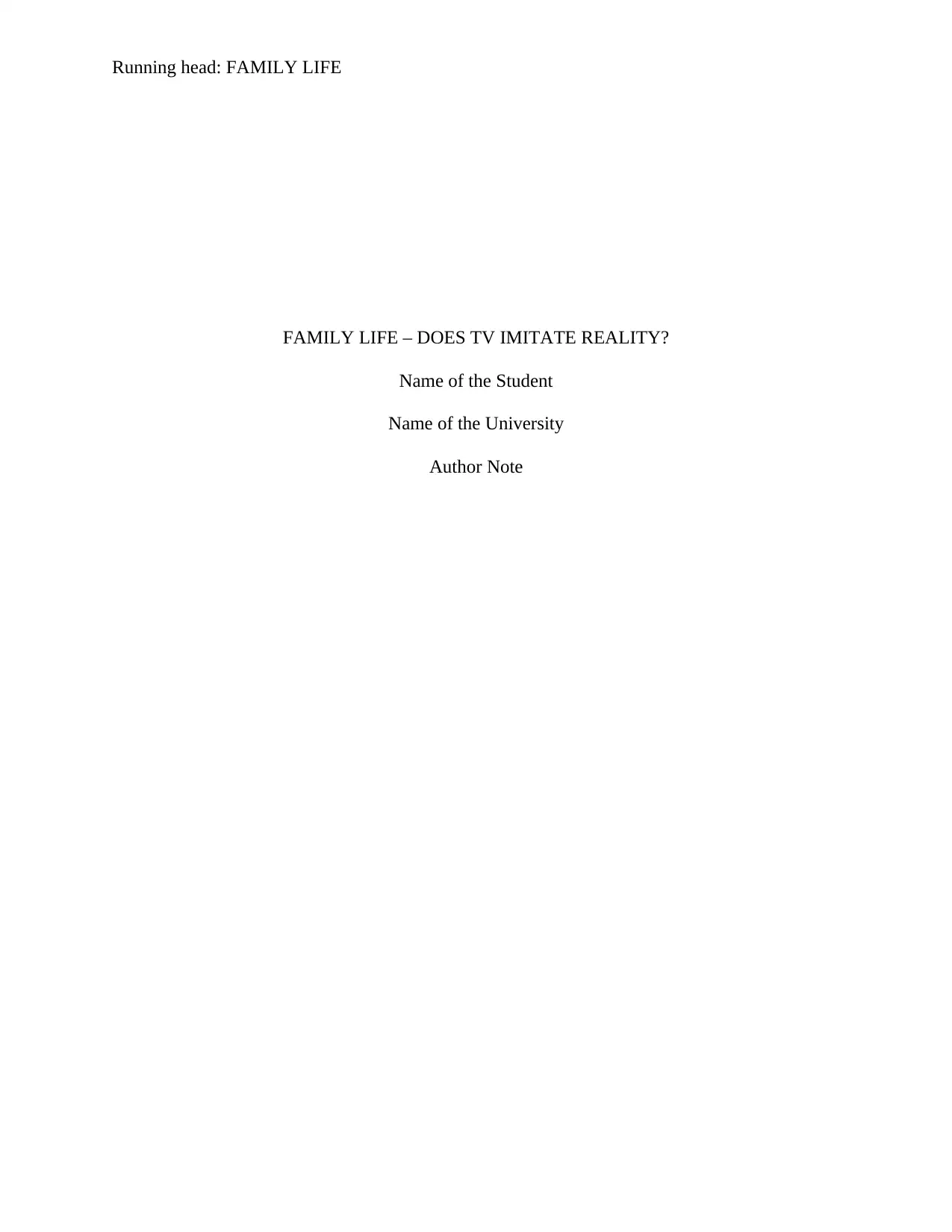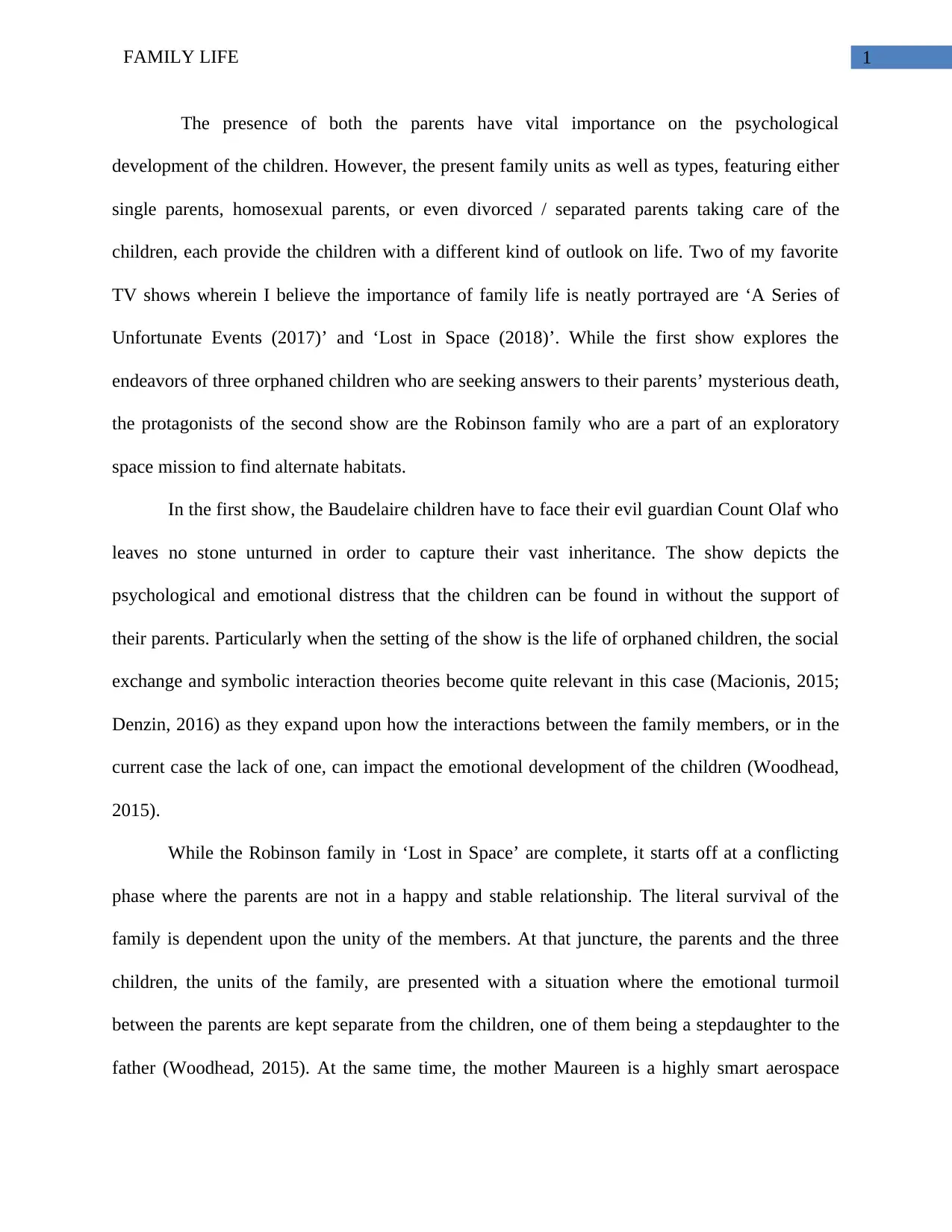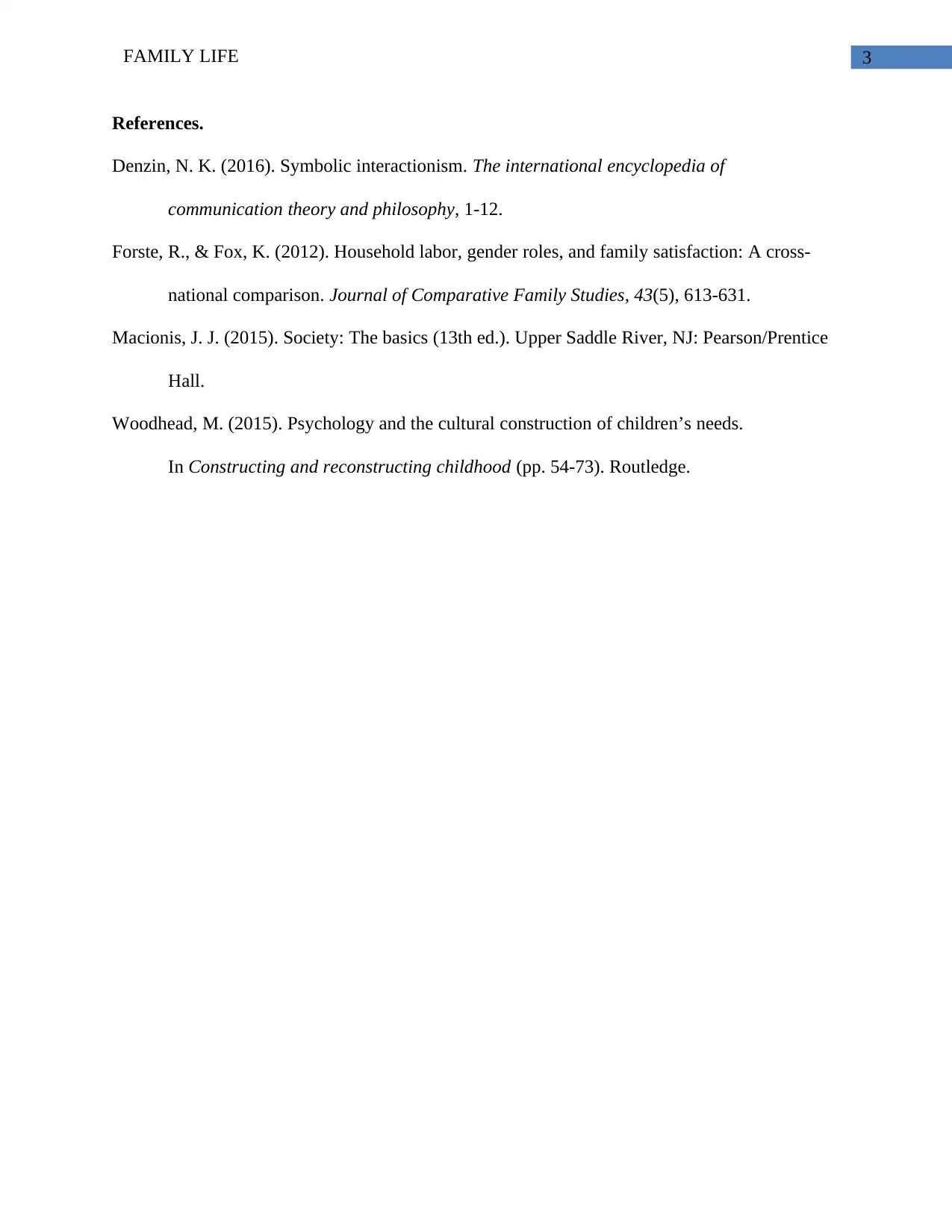Family Life: TV Show Analysis & Psychological Impact on Children
VerifiedAdded on 2022/08/12
|4
|591
|23
Essay
AI Summary
This essay examines the portrayal of family life in two TV shows, 'A Series of Unfortunate Events' and 'Lost in Space,' and how these shows reflect and influence our understanding of family dynamics and child development. The essay explores the psychological and emotional impact on children in different family structures, including orphaned children and families facing marital challenges. The analysis draws upon sociological theories such as symbolic interactionism to understand the interactions within families and their influence on children's emotional well-being. The essay highlights the significance of family units as a key source of happiness, while also considering the impact of non-stereotypical gender roles. The essay emphasizes the importance of family support and the emotional turmoil within families, showcasing the diverse ways family life is presented and experienced in these TV shows.
1 out of 4





![[object Object]](/_next/static/media/star-bottom.7253800d.svg)